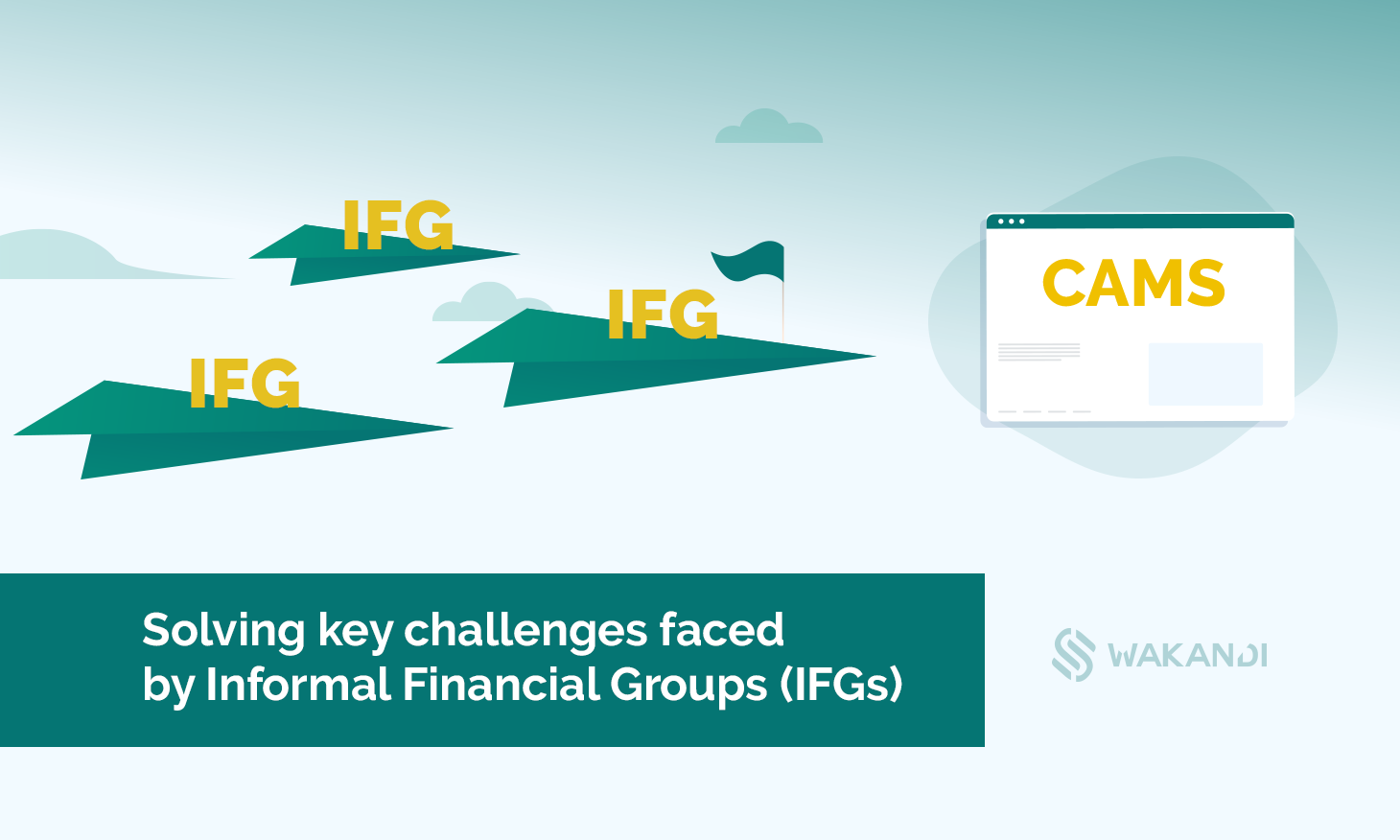Solving key challenges faced by Informal Financial Groups (IFGs)

People in Tanzania and South Africa, and many other African countries have a tradition of forming social groups to meet their financial needs. These informal financial groups (IFGs) are created to expand financial inclusion among societies with less or no access to formal banking. IFGs offer services like loans, savings and investments.
10.6 million people of Tanzania continue to access financial services informally. – FSDT
Informal financial groups play a critical role in offering access to financial service to poor and low-income households in Africa. They bring in huge memberships every year. Members of these groups cite the high costs of opening bank accounts as the prime reason for not having a formal account. According to a recent survey, “82% of the respondents said they don’t have enough money to open an account.” Stringent documentation requirement is another reason to adopt informal financial options. On the other hand, informal groups tend to offer ease of accessibility and lower costs. Other benefits include little or no mortgage requirements, flexibility in interest rates and repayment schedules.
Problems faced by IFGs and the Wakandi solution
These groups also face some challenges as they operate in this ever-changing scenario. Being highly dependent on cash and manual processes to operate, they face issues in making and recording transactions. Security also remains a major concern for such groups. Technology can help IFGs to operate digitally with better speed, security, and efficiency. Wakandi offers a modern and more advanced financial inclusion system called CAMS (Credit Association Management System) that can help solve their challenges and enable them to thrive in the current landscape. The system is based on Wakandi’s DLT-based financial infrastructure that enables modern solutions for financial services.
Let’s learn more about the challenges faced by IGFs and how Wakandi can help to solve them.
Issues with the store of values
Cash is a popular mode of storing value for most of the informal financial groups in Africa. Almost all transactions whether contribution or giving benefits happen in cash. Despite the ease of payments it offers, there are certain disadvantages to being dependent on cash. There are two major problems that most of these groups have to face –
- How to store the hard cash so it is safe from theft and robbery.
- Chances of fraud and corruption increase tremendously. Also, it’s nearly impossible to trace the culprit in case a fraud happens.
Wakandi’s CAMS enables digital payments solving the problem of storing cash. All transactions can be done through digital modes like mobile, avoiding the need for handling and managing cash. Based on DLT, the system also brings better security and transparency in payments. Any transaction can be easily traced which can reduce the chances of fraud and corruption.
Poor record-keeping in IFGs and skill gap
Poor record-keeping is one of the critical issues faced by IFGs in day-to-day operations. The problem is present in almost every type of social group affecting the calculation of interest, capital pay-outs, and maintaining internal accounts. Lack of skilled people in these groups adds to the problem of poor-record management.
CAMS offers an innovative way to record transactions digitally. Every transaction is stored on the distributed ledger which is updated in real-time and cannot be altered. If adopted, this new system could be a significant way of keeping records and managing day-to-day operations.
Lack of innovation in IFGs
There is a huge scope of constant innovation and development for IFGs in African countries. IFGs have been dependent on manual practices for years to manage their operations. As the demand of today’s consumer continues to rise, social groups could be burdened by these legacy processes in the future.
CAMS could be that solution that promises to bring innovation and development for IFGs in Africa. When more and more users will connect to the system, it will enable better access to formal services through banks. In addition, the system will also provide a hub of data that can be used to build innovative products and services.
The number of users of IFGs in Africa
IFGs offer financial solutions to millions of people in African countries. The deepening cash economy and the rising number of users challenge IFGs to continue providing better services with more features. This also puts constant pressure on the manual systems that are already in use.
Wakandi’s CAMS is based on technology and innovation at its core. It can help solve many challenges that informal financial groups have been facing. It could be the solution that your group needs. Sounds interesting? You can request a demo here.
Final Thoughts
Millions of people seek financial services from informal groups due to all the benefits they offer. However, problems such as manual processes, poor record-keeping, and lack of innovation can hinder their growth in the future. An innovative solution like CAMS can help solve many challenges faced by IFGs and create a positive impact on millions of customers looking for effective and affordable financial solutions.


Comments